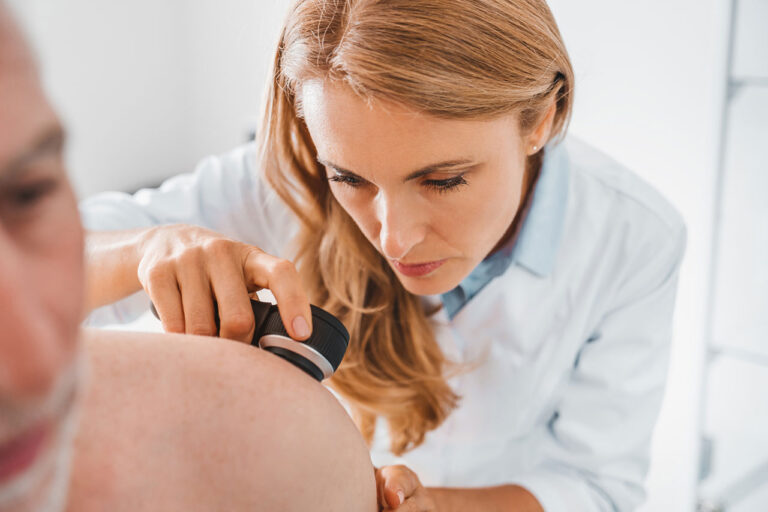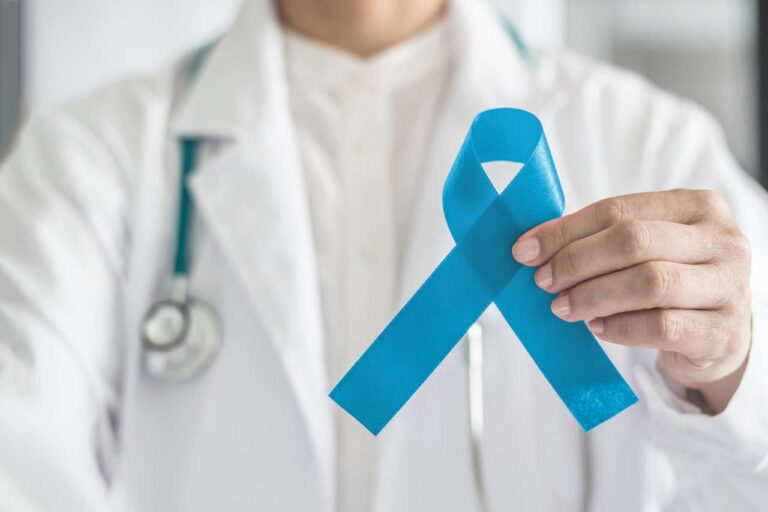
If you are undergoing chemotherapy treatment, you may face many side effects, including low white blood cell count. White blood cells fight against foreign pathogens, like viruses and bacteria, and protect you from diseases. Therefore, a low level of white blood cells increases your risk of having fever or infections.
To combat this side effect, drugs like Udenyca can help by increasing your white blood cell count. In this article, we will explore everything you need to know about Udenyca, including its dosing, side effects, injection costs, and more.
Get Financial Assistance
What Is Udenyca?
Udenyca (pegfilgrastim-cbqv) is a medication used to reduce the risk of infection in people receiving chemotherapy for non-myeloid cancers.
Non-myeloid cancers are all cancers that do not affect your bone marrow. Some examples are carcinoma, sarcoma, melanoma, lymphomas, lymphocytic leukemias, and multiple myeloma. The FDA approved Udenyca on November 2, 2018 [1].
If you receive chemotherapy for non-myeloid cancers, your neutrophil (a type of white blood cell) level may decrease. This condition is called neutropenia. Neutrophils fight off infections. So, having a low level of neutrophils will increase your risk of infection.
If you have a fever with neutropenia, then the condition is known as febrile neutropenia. Udenyca injections help you by increasing the production of neutrophils.
What Is Udenyca Used To Treat?
Udenyca is an FDA-approved medicine used to prevent febrile neutropenia in patients receiving chemotherapy for non-myeloid cancers [2]. Symptoms of febrile neutropenia include fever, chills, shortness of breath, burning while urinating, rash, redness, and pain.
How Does Udenyca Work?
Chemotherapy lowers the levels of neutrophils in patients being treated for non-myeloid cancers.
Udenyca is a medication that contains the drug pegfilgrastim-cbqv. It works by helping you produce more neutrophils. It does this by binding to specific cell surface receptors on neutrophil precursors in the bone marrow.
After binding, it encourages the white blood cells to grow, mature, and become active.
Udenyca Side Effects
Like any other medicine, Udenyca can have some side effects. Below are some mild to severe adverse effects [3]:
Mild Side Effects
- Pain in your arms and legs
- Bone pain
These mild side effects usually go away within a few days. However, if they do not go away or become worse, consult your doctor.
Speak to a Specialist
About Copay AssistanceSevere Side Effects

Spleen Rupture: Udenyca can enlarge your spleen, and in some cases, it can cause a rupture. A ruptured spleen can lead to death. Symptoms include pain in the upper left abdomen and left shoulder. Consult your doctor right away if you encounter these symptoms.
Acute Respiratory Distress Syndrome (ARDS): ARDS is a lung condition that can be life-threatening. Symptoms include shortness of breath, rapid breathing, and difficulty breathing.
Serious Allergic Reactions: Udenyca injections can cause severe allergic reactions that can be deadly. Symptoms include rash, shortness of breath, dizziness, swelling of your mouth and eyes, and rapid heart rate. If you encounter these symptoms, stop using Udenyca and inform your doctor right away.
Kidney Problems: Symptoms of kidney problems include blood in your urine or dark-colored urine, less frequent urination, and swelling of your face and ankles.
Capillary Leak Syndrome (CLS): In this condition, fluids leak from your blood vessels into your body tissues. It can even cause death. Symptoms include difficulty breathing, tiredness, dizziness, swelling of your abdomen, and a feeling of fullness.
Aortitis: Udenyca medication can cause inflammation in your aorta (the large blood vessel that transports blood from the heart to the body). Symptoms include fever, stomach pain, tiredness, and back pain.
Please note that this is not a complete list of all possible side effects. Consult your doctor right away if you encounter any severe side effects of Udenyca.
Udenyca Dosing
The dosage of Udenyca differs from patient to patient. Your doctor will determine the right dosage for you. You will receive Udenyca as an injection under your skin. The usual recommended dosage is given below [2]:
For patients with cancer who are receiving chemotherapy: The recommended adult dose of Udenyca is 6 mg once per chemotherapy cycle. It’s typically given one day after chemotherapy. You should not receive this drug between 14 days before and 24 hours after receiving chemotherapy. For children who weigh less than 45 kg, a doctor will adjust the dose based on weight.
For patients exposed to harmful doses of radiation: The recommended adult dose of Udenyca is two 6 mg injections. After the radiation exposure, you will receive the first 6 mg injection as soon as possible. Then, after one week, you will receive another 6 mg injection. The dosage for children under 45 kg is adjusted based on their weight.
Get Udenyca Copay Assistance Now
Udenyca Injection Costs
Udenyca is available as a 6 mg/0.6 ml single-dose prefilled syringe. A single dose of the Udenyca medication costs around $4,400 [4]. However, the actual cost will depend on your insurance coverage, location, treatment plan, and the pharmacy you visit.
FAQs
Here are some common frequently asked questions about Udenyca:
1. Can Udenyca injections cause hair loss?
No. Hair loss is not a side effect of Udenyca. If you are experiencing hair loss, it could be due to chemotherapy.
2. Can I use Udenyca during pregnancy or breastfeeding?
There is still not enough data to recommend or prohibit the use of Udenyca during pregnancy or breastfeeding [2]. You may only use it during pregnancy or breastfeeding if your doctor thinks that the potential benefits outweigh the risks.
3. What are the clinical benefits?
Udenyca injections help you increase your neutrophil count. Neutrophils fight foreign objects like viruses or bacteria and prevent you from getting infections. In clinical studies, researchers found that Udenyca significantly reduced the risk of febrile neutropenia (fever and a low white blood cell count), hospitalizations, and the need for IV antibiotics [2].
4. Can elderly people use this medication?
Yes. Patients aged 65 or older can safely use Udenyca. It is just as effective and safe in older people as it is in younger people [2].
5. Does Udenyca interact with other medications?
The interactions of Udenyca with other medications are not known. The manufacturers do not mention any drug interactions of Udenyca [2]. Still, you should be careful. Before starting treatment, inform your doctor about all the medications that you are taking, including over-the-counter drugs and herbal medicines.
6. How long does it take for Udenyca to work?
Udenyca starts working soon after you take the injection. However, due to the way it works, you may not feel a difference in your body. Your doctor will monitor you during treatment to ensure the medication is working.












